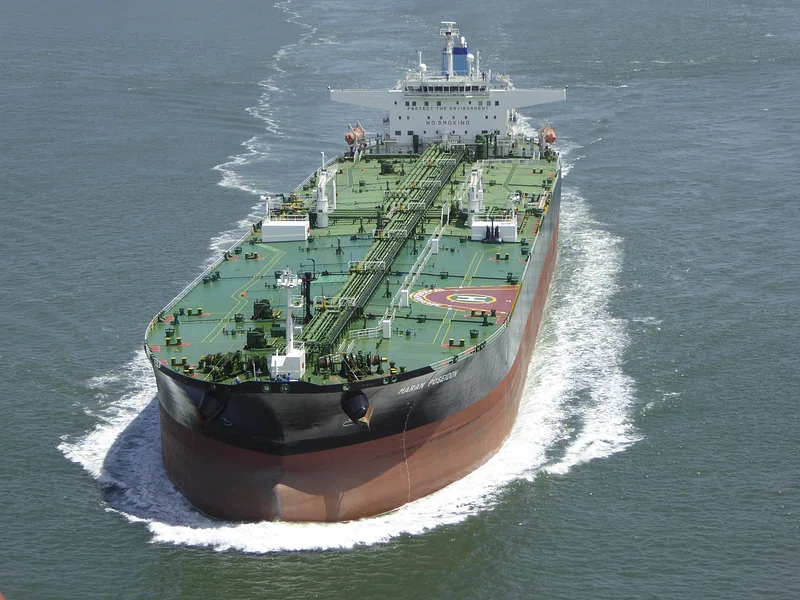
Europe's rejection of Russian oil, gas and coal comes at a heavy price
By Rhod Mackenzie
The EU reports a sharp fall in its dependence on Russian oil and gas, but the US share of its imports has risen sharply. How does this threaten Europe?
Eurostat reports that by the end of June 2023, dependence on oil from Russia will have fallen from 29.2 per cent to 2.3 per cent compared to the same period in 2021, on gas - from 38.5 per cent to 12.9 per cent, on coal - from 45 per cent to 0 per cent.
However, a holy place is never empty - the European Union's need for energy resources, although decreasing, still remains significant. The United States has emerged as a new source of supply - according to Bloomberg, in the second quarter the EU imported most of its gas supplies from there (24%).
The United States also became the largest supplier of oil, increasing its share by 5 percentage points to 13%. Saudi Arabia and Norway are in equal second place (11%), followed by Kazakhstan (8%). The oil market is more differentiated; there are no monopolists, but the overall picture is very clear.
No guarantees
The main conclusion is the growing dependence on fuel supplies from the United States. "While declaring a reduction in dependence on oil and gas from the Russian Federation, European officials are silent about the consequences and increased risks for the economies of the European Union countries," says Associate Professor of the Department of International Business and Customs Affairs at the Russian Economic University. G.V. Plekhanova Anastasia Prikladova.
The fact is that American supplies are much less stable than Russian. Oil and gas from Russia were mainly piped to Europe, which ensured a constant supply.
"It is difficult to imagine that Russian exporters would voluntarily stop pumping oil and gas without objective reasons, thereby depriving themselves of significant revenues," the economist says.
Oil and gas from the United States to Europe is delivered by sea, which makes it possible to quickly change the direction of trade flows by sending tankers and gas carriers from the European market to the Asia.
As Prikladova recalls, such a situation was already observed at the beginning of this year against the backdrop of falling gas prices in the EU.
"Moreover, even if long-term contracts are concluded, this is no guarantee that suppliers will fulfil their obligations," the analyst says. Contractual terms can be breached if the potential benefit of selling products to other buyers exceeds the amount of any fines.
There are precedents. Italy's Eni and Singapore's Gunvor have repeatedly cancelled planned LNG deliveries to Pakistan in 2021-2022.
According to the analyst, there is no guarantee that EU countries will not find themselves in a similar situation.
"The European Union's growing dependence on the United States for oil and gas imports therefore carries the risk of not receiving enough fuel if prices on the competing Asian market are higher. Or American exporters will find it unprofitable to supply," he concludes.
The bottom line
One obvious consequence of supply instability due to reduced dependence on Russian oil and gas is a reduction in industrial production. According to Andrey Kochetkov, senior analyst at Otkritie Investments, a quarter of European companies are considering the possibility of moving production to other countries.
The fertiliser sector is most dependent on Russian gas. The cost of its production in Europe has risen by 150 per cent, and factories in Norway, Germany, Poland and Lithuania have shut down. As a result, we had to buy fertiliser from the same place - Russia. Its exports were not subject to Western sanctions and increased fivefold last year.
The situation with oil for Europe is less critical, as this market is quite diverse and allows the use of alternative suppliers. However, the overall price for Europe is now significantly higher than for China, for example.
"The rejection of Russian gas has been more painful because the cost of LNG is much higher than pipeline supplies. Moreover, the reduction in gas consumption will not go unnoticed, as it is directly linked to the decline in production in various industries," says Kochetkov.
In essence, by depriving itself of Russian gas, Europe is losing its competitive advantage, as other suppliers cannot replace Russia in terms of either volume or price.
"Therefore, triumphant reports in Europe about successes in the field of decoupling from the Russian resource base are largely wishful thinking," the analyst argues.
The reduction in consumption has taken place. But at the same time, Europe has caused itself economic damage by reducing its future development opportunities. In the event of unfavourable weather conditions, European consumers will no longer have a reliable source to meet any increased demand.
Tricky manoeuvres
On the other hand, despite the EU's bravura assurances about reducing its dependence on Russian gas, not everything is so clear-cut.
Russian maritime exports of energy resources are now adapting to a kind of transit model, where third party countries are somehow involved in the export of goods. "Within this model, various schemes are used that distort the EU's foreign trade statistics, which reflect the geography of hydrocarbon supplies," explains the Deputy Director. Evgeniy Smirnov, Head of the Department of World Economy and International Economic Relations at the Russian State University of Management.
The transport via pipelines of oil and gas is very easy to track, which is not the case with sea transportation. As a result, the traces of export and import flows are very confusing.
As part of the new trade model, many new traders and intermediaries have appeared on the world oil market, organising and contributing significantly to Russian exports of hydrocarbons.
According to the economist, these techniques clearly show that sanctions against Russian oil exports are difficult to implement in practice.
